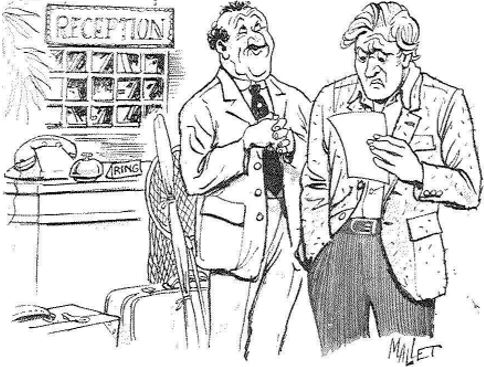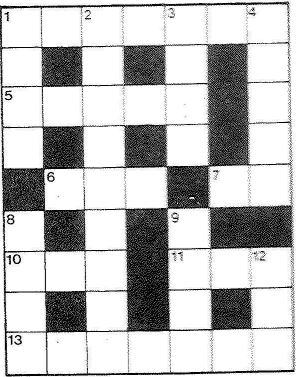

Grammar


Tenses


Present

Present Simple

Present Continuous

Present Perfect

Present Perfect Continuous


Past

Past Simple

Past Continuous

Past Perfect

Past Perfect Continuous


Future

Future Simple

Future Continuous

Future Perfect

Future Perfect Continuous


Parts Of Speech


Nouns

Countable and uncountable nouns

Verbal nouns

Singular and Plural nouns

Proper nouns

Nouns gender

Nouns definition

Concrete nouns

Abstract nouns

Common nouns

Collective nouns

Definition Of Nouns

Animate and Inanimate nouns

Nouns


Verbs

Stative and dynamic verbs

Finite and nonfinite verbs

To be verbs

Transitive and intransitive verbs

Auxiliary verbs

Modal verbs

Regular and irregular verbs

Action verbs

Verbs


Adverbs

Relative adverbs

Interrogative adverbs

Adverbs of time

Adverbs of place

Adverbs of reason

Adverbs of quantity

Adverbs of manner

Adverbs of frequency

Adverbs of affirmation

Adverbs


Adjectives

Quantitative adjective

Proper adjective

Possessive adjective

Numeral adjective

Interrogative adjective

Distributive adjective

Descriptive adjective

Demonstrative adjective


Pronouns

Subject pronoun

Relative pronoun

Reflexive pronoun

Reciprocal pronoun

Possessive pronoun

Personal pronoun

Interrogative pronoun

Indefinite pronoun

Emphatic pronoun

Distributive pronoun

Demonstrative pronoun

Pronouns


Pre Position


Preposition by function

Time preposition

Reason preposition

Possession preposition

Place preposition

Phrases preposition

Origin preposition

Measure preposition

Direction preposition

Contrast preposition

Agent preposition


Preposition by construction

Simple preposition

Phrase preposition

Double preposition

Compound preposition

prepositions


Conjunctions

Subordinating conjunction

Correlative conjunction

Coordinating conjunction

Conjunctive adverbs

conjunctions


Interjections

Express calling interjection

Phrases

Sentences

Clauses

Part of Speech


Grammar Rules

Passive and Active

Preference

Requests and offers

wishes

Be used to

Some and any

Could have done

Describing people

Giving advices

Possession

Comparative and superlative

Giving Reason

Making Suggestions

Apologizing

Forming questions

Since and for

Directions

Obligation

Adverbials

invitation

Articles

Imaginary condition

Zero conditional

First conditional

Second conditional

Third conditional

Reported speech

Demonstratives

Determiners

Direct and Indirect speech


Linguistics

Phonetics

Phonology

Linguistics fields

Syntax

Morphology

Semantics

pragmatics

History

Writing

Grammar

Phonetics and Phonology

Semiotics


Reading Comprehension

Elementary

Intermediate

Advanced


Teaching Methods

Teaching Strategies

Assessment
Oil fee
المؤلف:
L.A Hill
المصدر:
Elementary Steps To Understand
الجزء والصفحة:
34-1
26/10/2022
2184

Ted worked in a factory in a big town. He liked fishing very much, and was very good at it. Whenever he was free, he went down to the small river behind the factory and tried to catch some fish, but there were very few there, because the water was dirty. Then one summer he went to the seaside during his holidays and stayed at a small, cheap hotel.
I've never fished in the sea before,' he thought. 'It will be rather different from fishing in our river.'
On the first day he caught a lot of fish and was very happy. He gave them to the hotel, and they cooked them for all the guests, and they enjoyed them very much. After that, he did this every day. But when Ted got his bill at the end of the week, he saw on it:
For oil to fry fish (7 days): £3.50.'
A Which of these sentences are true (T) and which are false (F)? Write T or F.
- Ted worked in an office in a big town.
- He was very good at fishing.
- During his holidays he went to the seaside.
- Ted caught a lot of fish.
- He sold the fish to the hotel.
- Ted stayed in the hotel for one week.
B Answer these questions.
- What was Ted's hobby?
- Where did he fish?
- Why did he not catch many fish there?
- Where did he go one summer?
- Where did he stay?
- Where did he fish there?
- When he caught a fish, what happened to it?
- And what happened at the end of the week?
C Do this puzzle.
Across:
1. Ted's hobby was...
5. Sometimes he fished during the day, and sometimes he fished at...
6. 
7. Ted got his bill... the end of the week.
10. It is Sunday again today. He came to the hotel a week
11. Not on.
13. Ted went to the seaside to have a nice....

Down:
1. When the sun is shining, we say, "The weather is ....”
2. 
3. Ted is getting ... a boat to go fishing. 
4. Ted was a ... in a hotel for a week.
8. The hotel people wanted 50p for oil for ... day.
9. 'Was the sea warm when Ted was at the seaside? “No, it was quite ………”
12. The hotel people needed oil to ... the fish in.
 الاكثر قراءة في Elementary
الاكثر قراءة في Elementary
 اخر الاخبار
اخر الاخبار
اخبار العتبة العباسية المقدسة

الآخبار الصحية















 قسم الشؤون الفكرية يصدر كتاباً يوثق تاريخ السدانة في العتبة العباسية المقدسة
قسم الشؤون الفكرية يصدر كتاباً يوثق تاريخ السدانة في العتبة العباسية المقدسة "المهمة".. إصدار قصصي يوثّق القصص الفائزة في مسابقة فتوى الدفاع المقدسة للقصة القصيرة
"المهمة".. إصدار قصصي يوثّق القصص الفائزة في مسابقة فتوى الدفاع المقدسة للقصة القصيرة (نوافذ).. إصدار أدبي يوثق القصص الفائزة في مسابقة الإمام العسكري (عليه السلام)
(نوافذ).. إصدار أدبي يوثق القصص الفائزة في مسابقة الإمام العسكري (عليه السلام)


















